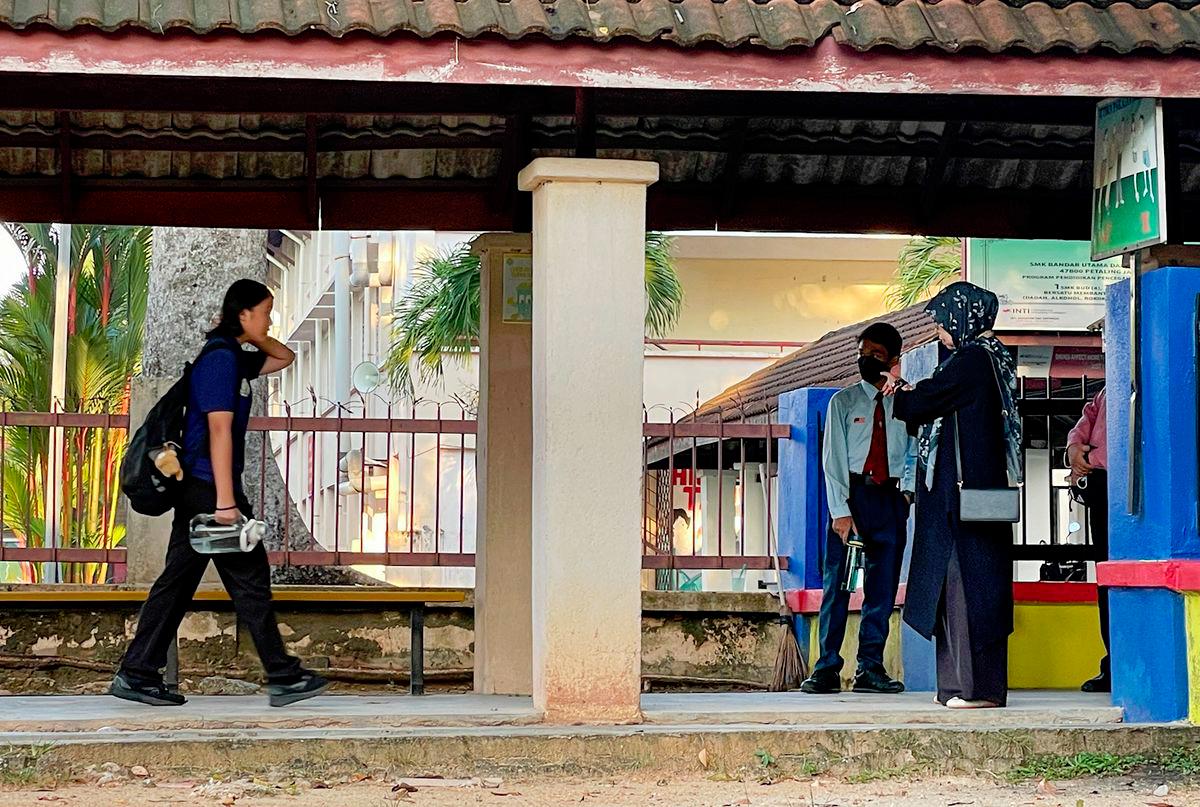PETALING JAYA: The recent spate of school violence has reignited a sobering question, are parents losing their moral influence over a generation growing up online?
Experts warn that in an age in which social media shapes values as much as family and faith, the absence of parental guidance and open dialogue could leave children morally adrift, blurring the line between empathy and aggression.
Universiti Putra Malaysia Human Ecology Faculty developmental psychology senior lecturer Dr Mohamad Naqiuddin Dahamat Azam said today’s adolescents are constantly exposed to new moral frameworks through influencers, widely spread content and entertainment.
“Developmentally, adolescents are wired to seek social approval. When they lack emotional validation at home, they may turn to online communities for belonging, even those that normalise cruelty or violence,” he said.
The area of the brain responsible for self-control, decision-making and moral reasoning only matures in one’s mid-20s, he explained.
“This makes them more vulnerable to impulsive imitation of behaviours that appear socially rewarding online.”
Mohamad Naqiuddin said parents must act as interpreters, not just monitors of their children’s digital world.
“Restriction without conversation breeds secrecy, whereas engagement builds critical awareness.
“Parents should discuss digital content, question online narratives and model ethical thinking to help teens develop moral autonomy.”
He said while no single factor explains acts of youth violence, developmental psychologists often see a mix of moral, emotional and spiritual voids.
“However, it is important not to reduce the issue to spirituality alone. Moral and spiritual guidance must be accompanied by emotional attunement and psychological support,” he said.
“A child could attend religious classes but still act out violently if he or she feels unloved, unheard or unsafe.
“The goal is to integrate spiritual values with emotional wellbeing, teaching compassion, forgiveness and accountability as lived experiences, not abstract doctrines.”
He said spiritual and religious teachings give children a moral compass beyond fear of punishment or desire for approval.
“When taught through compassion and example, spirituality strengthens emotional regulation and moral resilience, especially during adolescence.”
He said children raised with consistent moral and spiritual guidance, and parents who lead with warmth and fairness, tend to develop stronger empathy and
self-control.
“In contrast, youths lacking strong moral foundations are more prone to moral disengagement, which research links to higher aggression, bullying and difficulty managing anger or peer pressure.”
Mohamad Naqiuddin said moral education should begin early, using simple language and consistent reinforcement through praise, correction and storytelling.
“As children grow, parents should connect moral lessons with emotions and later guide adolescents towards reasoning and understanding.
“Teenagers need open discussions about moral issues to help them think critically and make ethical choices based on conviction rather than fear of punishment.”
He said even toddlers can recognise fairness and kindness, and parents could nurture empathy by asking questions, such as “how would you feel if someone treated you that way?”
“Open and empathetic family communication helps children resolve conflicts through dialogue, fostering perspective-taking and emotional understanding that are vital for moral maturity,” he added.
He warned that authoritarian or dismissive parenting could cause children to either obey blindly or rebel impulsively when frustrated.
“They may not learn how to cope with anger, disappointment or rejection in healthy ways, which are vital skills to prevent frustration from turning into aggression.”
He said recent tragedies should serve as a collective wake-up call for families, schools and communities.
“Preventing future violence begins at home, but it requires a whole ecosystem that nurtures empathy, emotional education and moral courage.”









